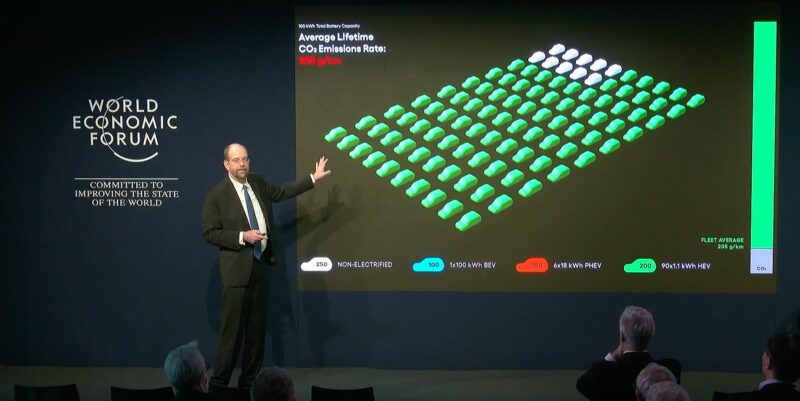During a presentation to the World Economic Forum in January 2023 , Toyota’s chief scientist Gill Pratt attempted to justify the company’s focus on hybrid vehicles over fully electric cars s by suggesting that there was a lithium shortage.
“There won’t be enough lithium,” Pratt said in January 2023.
“So what do we do? Our thesis, and Toyota is not alone in this, but I think we’re sort of the thought leader in this, is that we should electrify vehicles as much as possible but we don’t have to electrify them only one way.
“The one way that you’re the most familiar with is the pure battery electric vehicle, that’s the one that plugs in and then drives purely on the batteries. But it turns out that uses a lot of lithium.
“The other one, which is called a plug-in hybrid vehicle, has an engine on board that can recharge the batteries while the car is driving beyond a certain range.
“All of these use lithium but they use them in different amounts”
Pratt then went on to explain how distributing constrained lithium across 100 hybrids is better than concentrating that lithium into one vehicle, the theory based on an assumption that there’s only enough lithium available to supply 1% of vehicles.
“We have 100 vehicles that are traditional, so these are internal combustion cars and we want to replace these.” says Pratt.
Pratt then shows a comparison of allocating a finite constrained lithium resource of just 100 kWh between either a single fully electric vehicle (BEV) or 100 plug-in hybrid vehicles.
“If we use 100 kWh worth of batteries we can replace one of these 100 vehicles, the one you see in blue,” he said.
“So the average of the emissions that we see here has dropped only a little bit.”
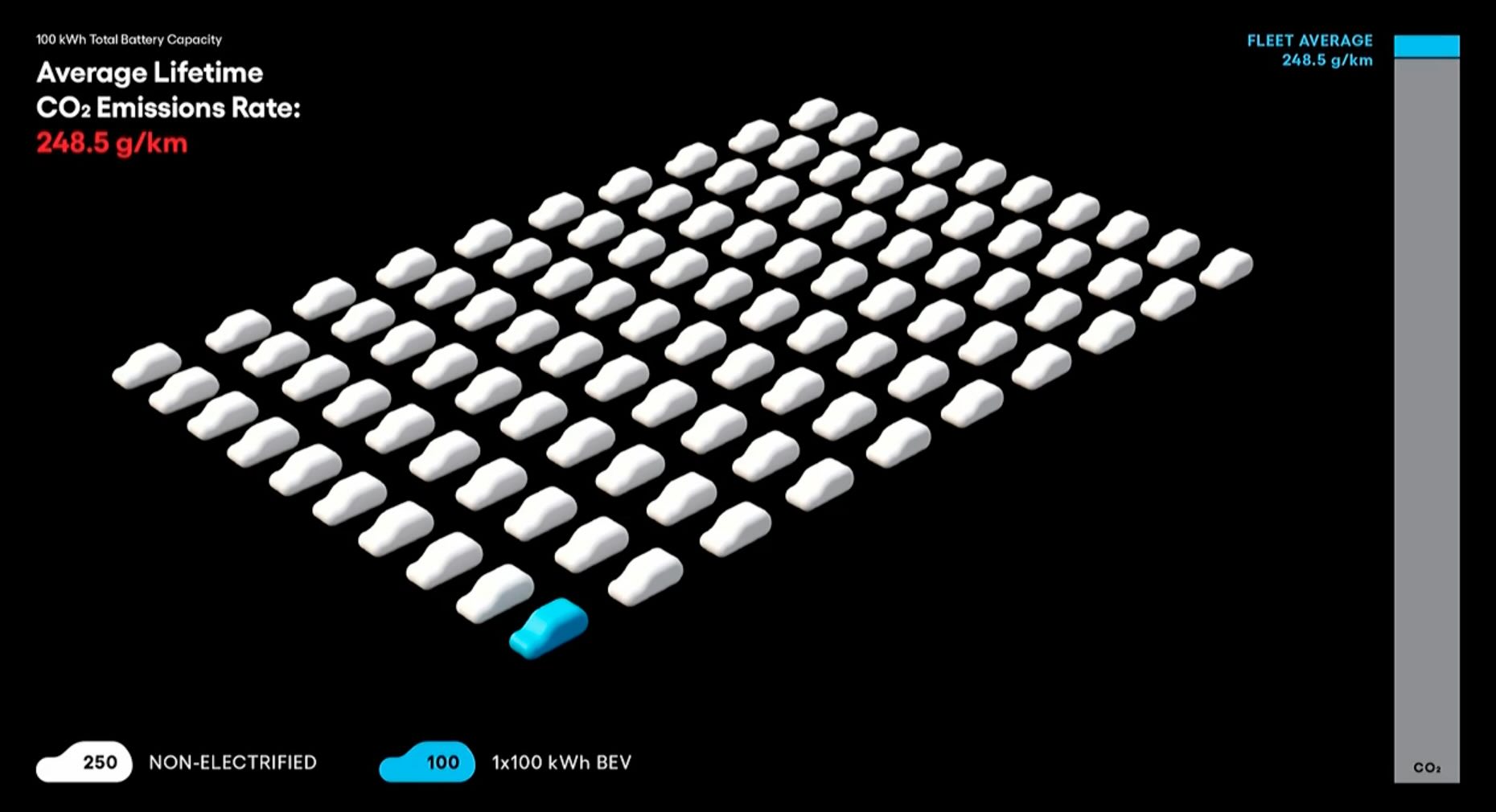
“Now, if we use that same 100 kWh and spread it amongst 6 vehicles, in this case these are plug-in hybrid electric vehicles. Because they plug-in and they have the gas engine for going further range, they have smaller batteries.
“So we can distribute that same amount of batteries over 6 vehicles instead rather than one. And it turns out that even though each one of them emits a little bit more than the pure battery electric vehicle the fleet average because we’ve replaced 6 instead of one is actually better.”
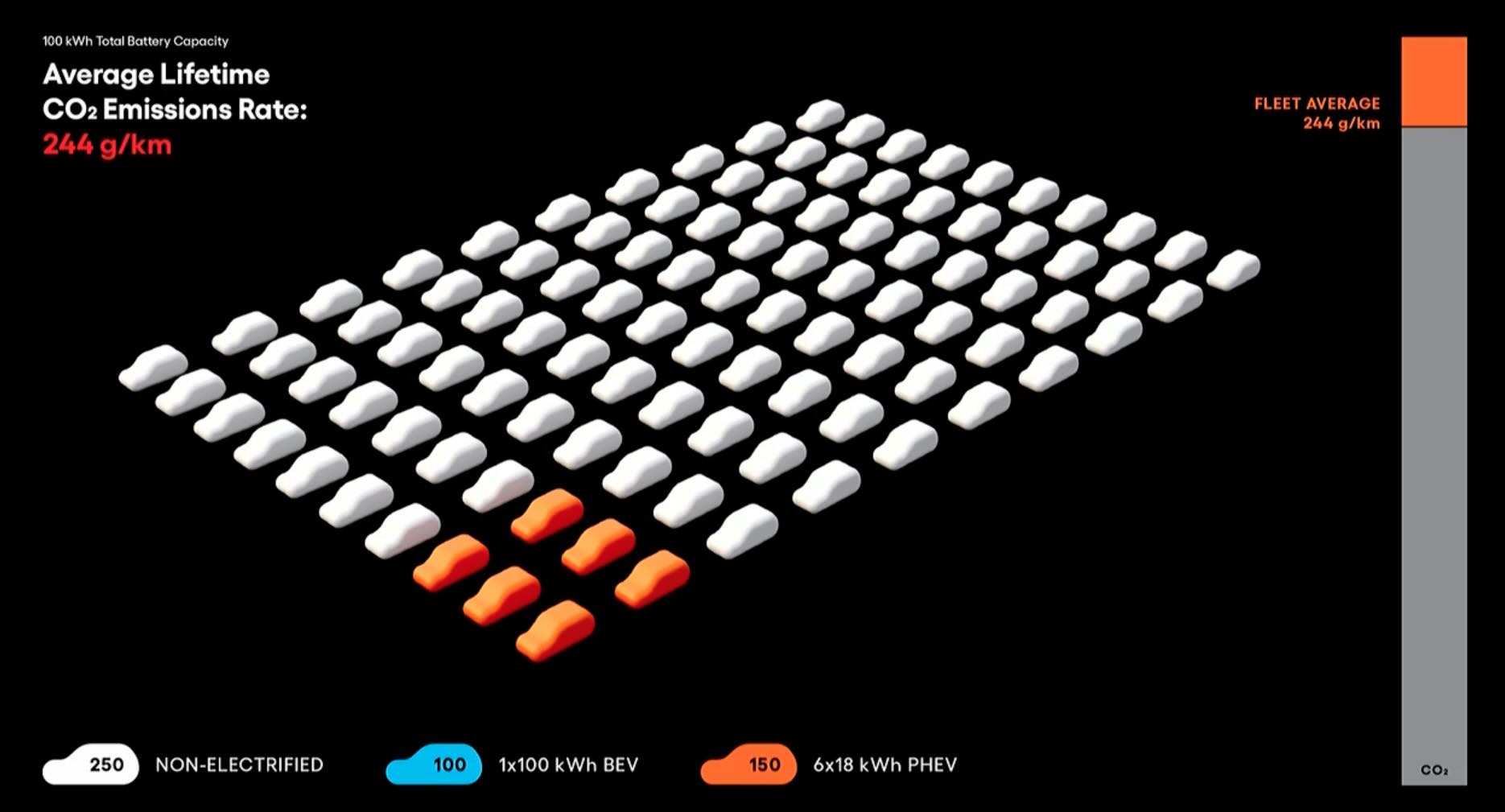
“And if we really want to go to the extreme, we can take a look at a hybrid car and in this case it puts out 200g/km so not nearly as good in fact twice as bad as the BEV but we’re replacing 90 of them because the batteries are smaller.”
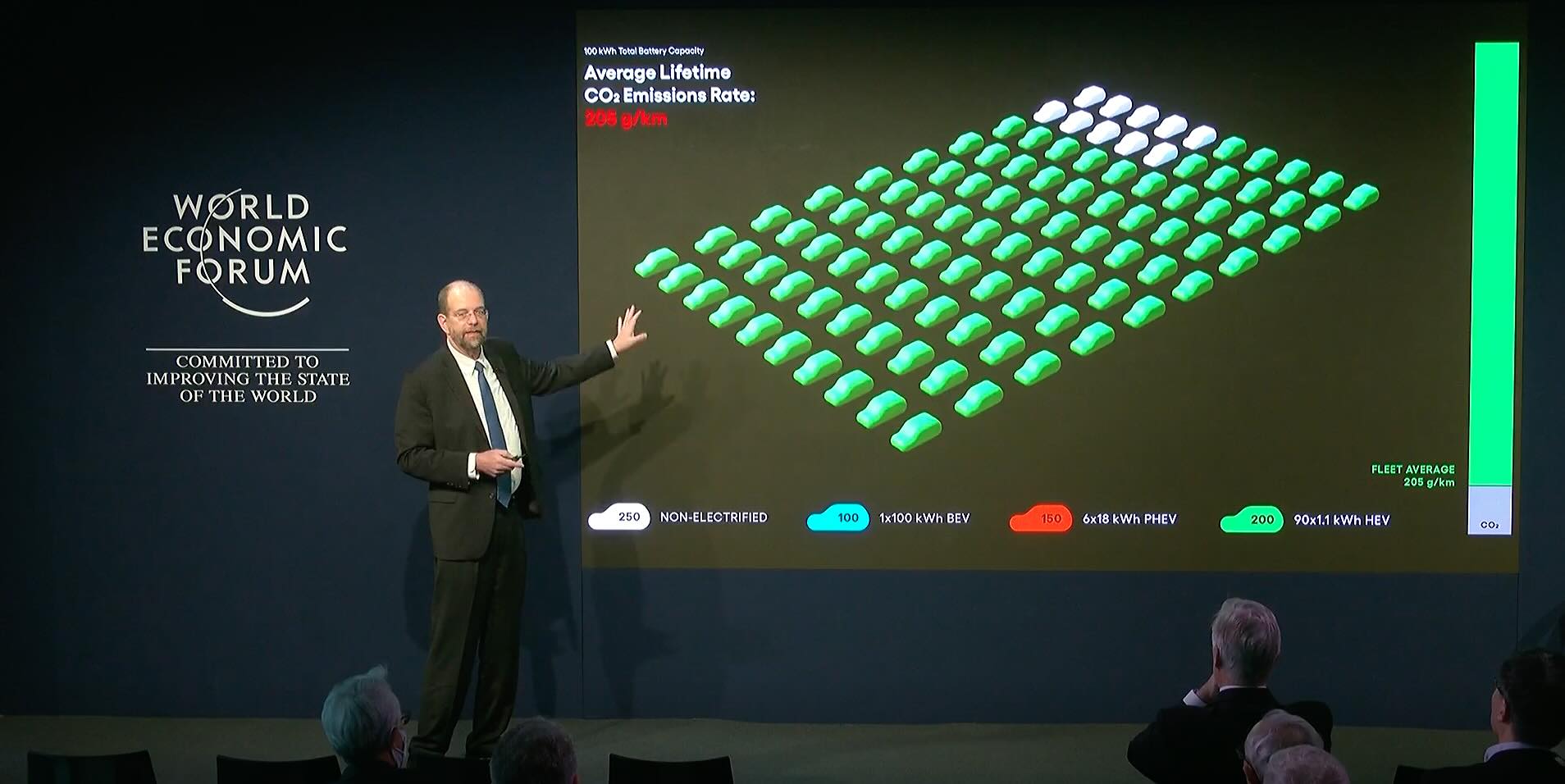
Absurd assumption on lithium constraint makes mockery of World Economic Forum
Pratt’s January 2023 presentation is based on the assumption that there is only 100 kWh of lithium battery supply available for every 100 vehicles produced, a now patently absurd claim.
Around 75 million cars were sold globally in 2022, including almost 10 million fully electric vehicles. The EV sales equate to 13% of total vehicle production, disproving Pratt’s assertion that lithium constraints meant only 1% of vehicles could be fully electric.
At the time Dutch energy analyst Auke Hoekstra responded by saying the Toyota claims are “utter bollox.” (sic).
I see @Toyota's chief scientist Gill Pratt everywhere with his seemingly 'sober' claim that scarce lithium should be used in small batteries for hybrid cars (that Toyota is market leader in of course).
He's calling out "EV-only extremists".
And it's such utter bollox.
🧵 pic.twitter.com/i7NaqXuwcX— AukeHoekstra (@AukeHoekstra) January 31, 2023
Lithium supply outstripping EV battery demand, not the other way around
During the presentation Pratt showed a graph titled “Lithium deficit is expected to grow”. The graph suggests that lithium demand from EV batteries will be well above supply out to 2040.
“You’ll notice there’s this incredible gap” said Pratt referring to the forecast supply shortage.
“The international energy administration actually has this gap even bigger at 50%”. Toyota’s claims are falling no-one but themselves.

Pratt’s is forecast that lithium will be supply constrained for the next 15 years would suggest that lithium carbonate prices should be going through the roof. However quite the opposite is happening.
Since the Toyota chief scientist made his presentation on the 18th of January 2023, the Lithium Carbonate price has plummeted thanks to a massive increase in global supply.
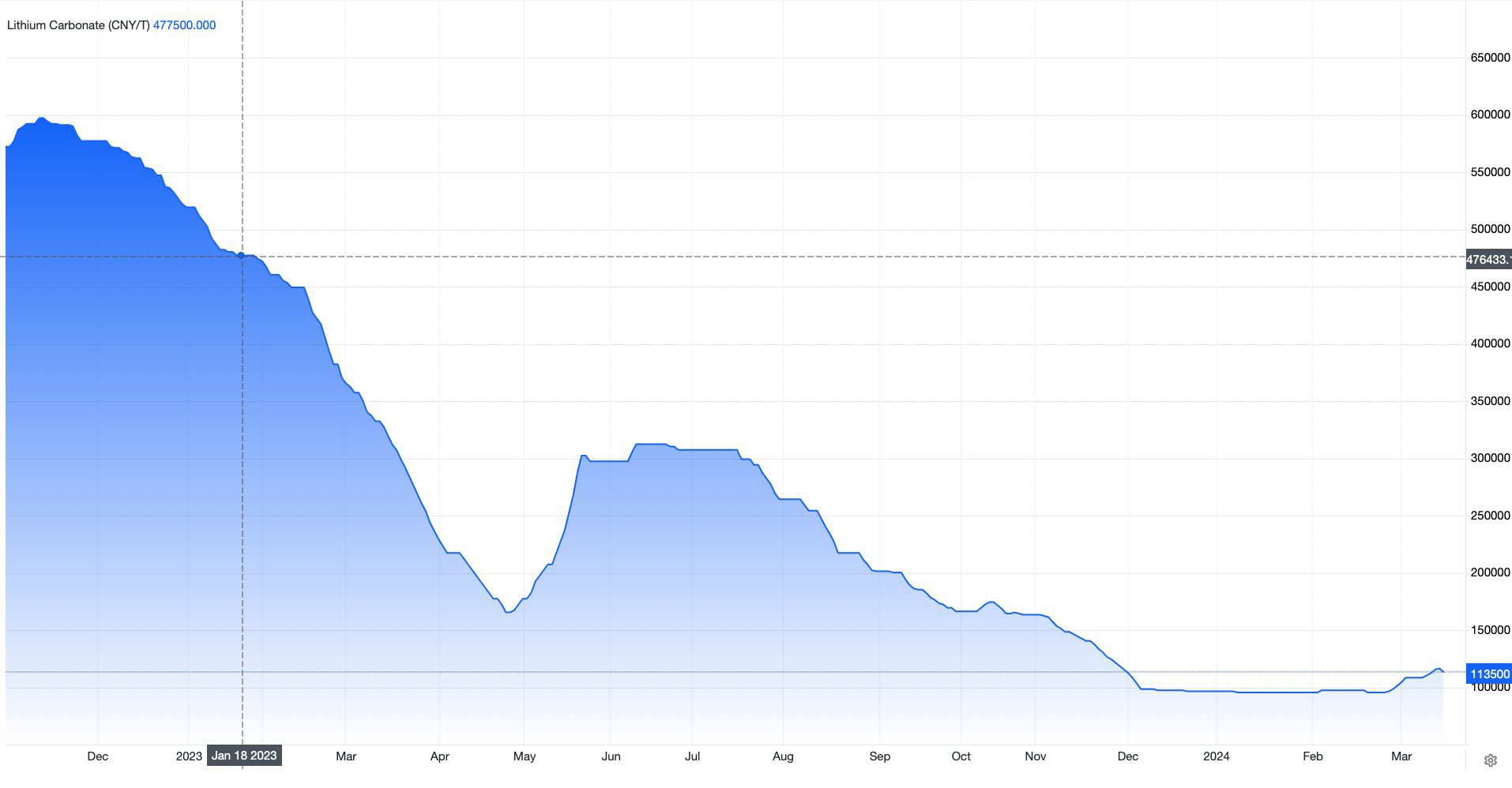
According to a new study from the International Council on Clean Transport (ICCT), lithium supply will outstrip demand well into the next decade. The study found that US lithium supply will outstrip demand (in the form of EV batteries) by a staggering three to one, further accelerating battery cost reductions and therefore fully electric vehicle prices.
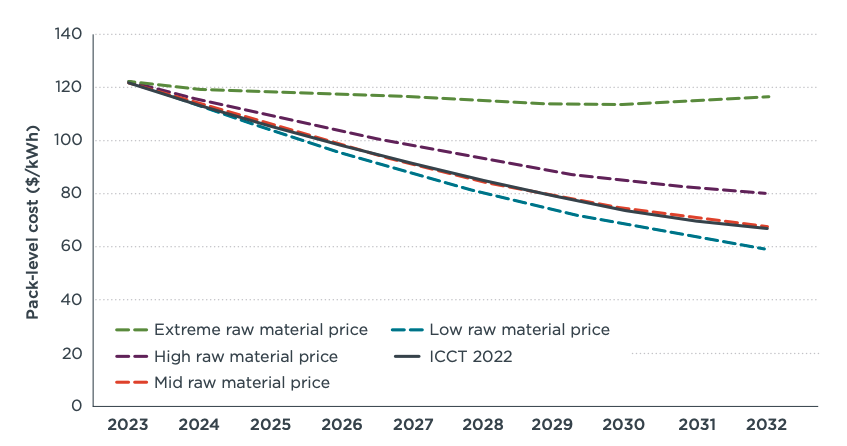

Daniel Bleakley is a clean technology researcher and advocate with a background in engineering and business. He has a strong interest in electric vehicles, renewable energy, manufacturing and public policy.

